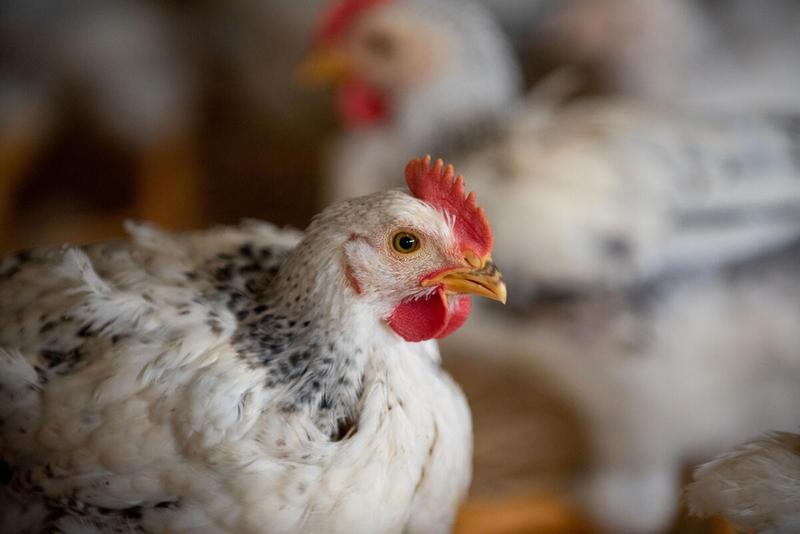Helping minimize the misuse of antibiotics in farmed poultry in Ukraine

A competition to find new ways to reduce antibiotic misuse in production animals has resulted in promising findings on how improved gut health in broiler chickens could boost immunity and reduce antibiotic-resistant bacteria, an approach that could bring wider benefits across the entire sector.
Changing the prescription
Antimicrobials overuse and misuse for disease prevention and growth promotion in production animals is a primary factor driving the rise of resistance in pathogens that can infect humans and animals. This has led toa global effort to reduce their inappropriate use.
In Ukraine, it is foreseen that a law banning the use of antimicrobials for infection prevention will come into force in 2026, targeting livestock, fish, and beekeeping production. This ban incentivized a competition to find new ways to minimize or avoid overuse and misuse of antibiotic. The competition was organized by the European Bank of Reconstruction and Development (EBRD) and the UN Food and Agriculture Organization (FAO) and supported by the Ukraine Ministry of Education and Science and the State Service of Ukraine on Food Safety and Consumer Protection.
“Through broader FAO and EBRD efforts to address antimicrobial resistance, farmers in Ukraine are already working to improve standards and implement more stringent biosecurity protocols, but still more needs to be done,” said Dymtro Prykhodko, Senior Economist at FAO. “The winning entry focused on boosting gut health in broilers resulting in up to 50% reduction in antibiotic use with no negative impact on bird productivity.”
Putting the chicken and the egg first
The winner – the Dnipro State Agrarian and Economic University looked at ways to boost the digestive health and immunity of broiler-chicken – chicken bred and raised specifically for meat – by improving the gut microbiota. These are microorganisms that live in the digestive tracts of animals, including bacteria, archaea, fungi, and viruses. The study looked at the effects of organic acids and monoglycerides of short-chain fatty acids on the gut barrier function as an alternative to antibiotics. These were administered to a population of 175,000 broilers after which the microbiota composition was studied and compared to a similar-sized control population.
The results, measured through a combination of testing antibiotic sensitivity, microbiome composition and blood analysis, showed a reduced load of pathogenic bacteria in the gut microbiota and the development of a faster immunity response in the experimental group compared to the control group. There was also a reduction of certain antibiotic-resistant bacteria with the most significant being E. coli. Feed conversion ratios and the average daily gain per bird also slightly improved in the treated group.
“We teamed up with a poultry producer to test the idea” explained Dmitry Masiuk, Director of the University’s Research Center. “The producer was already implementing high standards in terms of biosecurity measures, animal welfare, and documentation relating to flock health, which continued for both the experimental and the control group throughout the trial. This gives us confidence that the change we saw is the direct result of our intervention.”
Beyond the chicken
While this research is in its early stages, its potential to contribute to global efforts to reduce antimicrobial resistance – listed by the World Health Organization as among the top ten threats to global health – should not be underestimated.
“Just before the war, meat and dairy products were providing around a quarter of all food calories in Ukraine and accounted for 20% of all household expenditure, making it a significant industry for food security and rural economy,” said Vasyl Hovhera, Principal, Agribusiness Advisory, the EBRD. “The preliminary results show that integrating specific interventions to reduce the reliance of antibiotics in a wider package of good biosecurity, hygiene protocols and improved standards can benefit poultry and other livestock production sectors with further investment and capacity building across the entire production system.”
This activity is part of a larger EBRD-FAO project focusing on improving the capacity of private and public sectors to manage the risks associated with transboundary animal diseases and reduce antimicrobial resistance across several countries in South-Eastern Europe. For more info, visit Agtivate.org.
